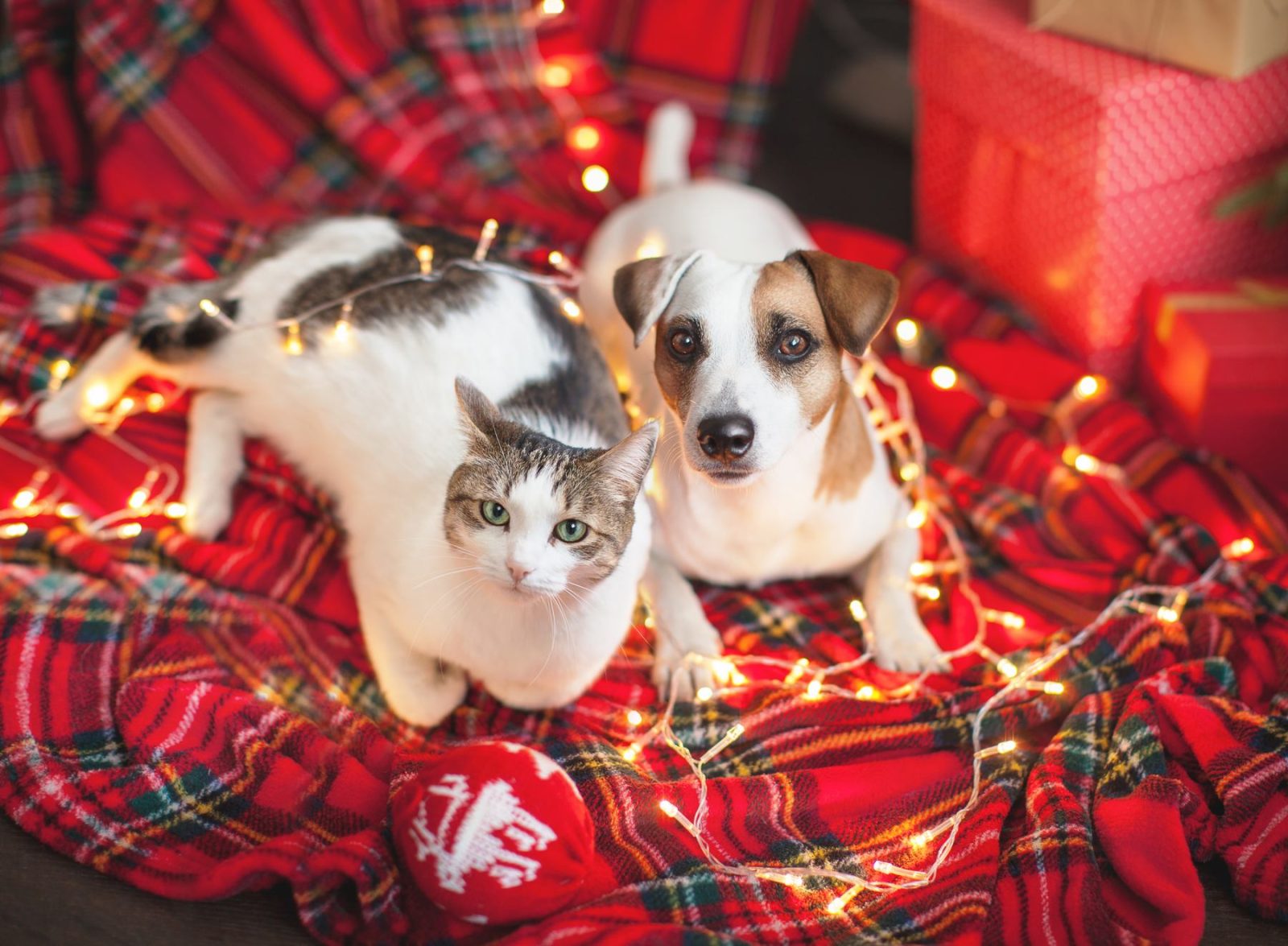With Christmas just around the corner and everyone looking forward to all the many treats that are associated with Christmas we wanted to take a moment to warn you of how some of these treats can be hazardous towards our pets.
Firstly, (our favourite) chocolate contains a chemical known as Theobromine, which is toxic to dogs. The darker the chocolate the more theobromine is present and that is why darker chocolate is always more dangerous. The Toxic dose of chocolate can be as low as 20mg/kg, so as an example two ounces of milk chocolate per kilogram of bodyweight can potentially be fatal in dogs. Smaller amounts usually can make a dog develop symptoms of gastroenteritis (or gastric infection) such as vomiting or diarrhoea that can result in dehydration if not treated on time. So be mindful of all the boxes of Roses and Heros and the many selection boxes that may be left lying around the house.
Raisins can cause kidney damage. As we know Raisins are present in Christmas treats like Christmas pudding, Christmas cake and Mince Pies. The amount of raisins that can cause significant illness ranges from 11 to 30 grams per kilogram. Dogs develop vomiting and/or diarrhoea within 6 to 12 hours of eating raisins. Other signs to look out for include lethargy, loss of appetite, abdominal pain, weakness, excessive thirst, and tremors. Kidney failure develops within 1 to 3 days and often results in death.
Onions and garlic commonly used in stuffing can cause Haemolytic anaemia (damage to the red blood cells). Consumption of as little as 5 g/kg of onions in cats or 15 to 30 g/kg in dogs has resulted in dangerous changes in pets bloods. Onion toxicity is consistently noted in animals that ingest more than 0.5% of their body weight in onions at one time and it doesn’t matter whether they are cooked or not.
Although this is not something we would eat, it is a plant that is commonly used during Christmas for decoration. Red Poinsettia is moderately poisonous for dogs and cats. Some of the signs a dog or cat might develop after being in contact with this chemicals include skin irritation, frothing from mouth (if has eaten it), nausea, vomits, diarrhoea that if not taken care of might can cause further health issues.
Another danger around Christmas, is sharing our delicious dinner with our pets. Excessive amounts of fat, from ham and turkey skin can lead to a condition called pancreatitis. Pancreatitis is the term for inflammation of the pancreas. It is an extremely painful condition that we commonly see in the days after Christmas. Dogs often require blood tests to confirm, strong painkillers, IV fluids and a hospital stay with us while they recover. If you want to include a little bit of Christmas dinner for your pet, feed a small amount of lean turkey as a treat!
To enjoy a healthy, happy & vet visit free Christmas it is advisable to take note of all these dangers.
Merry Christmas from all the Team at Ballinrobe Veterinary Clinic!

